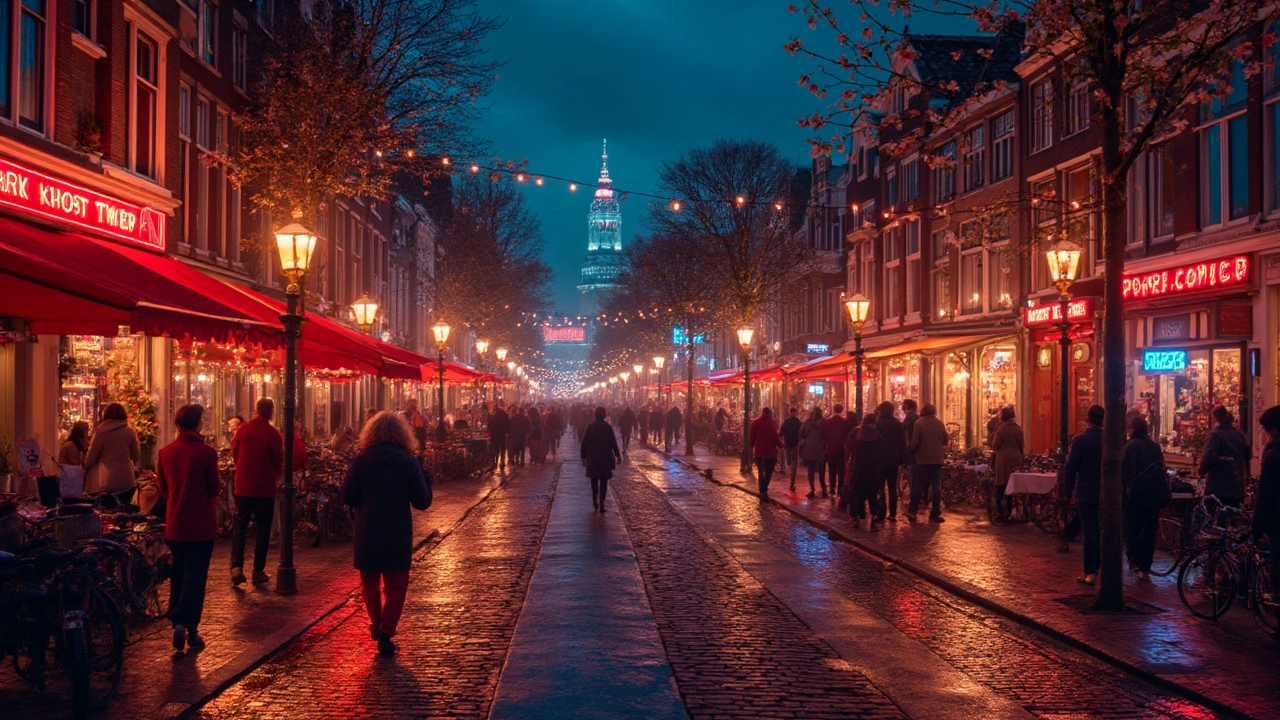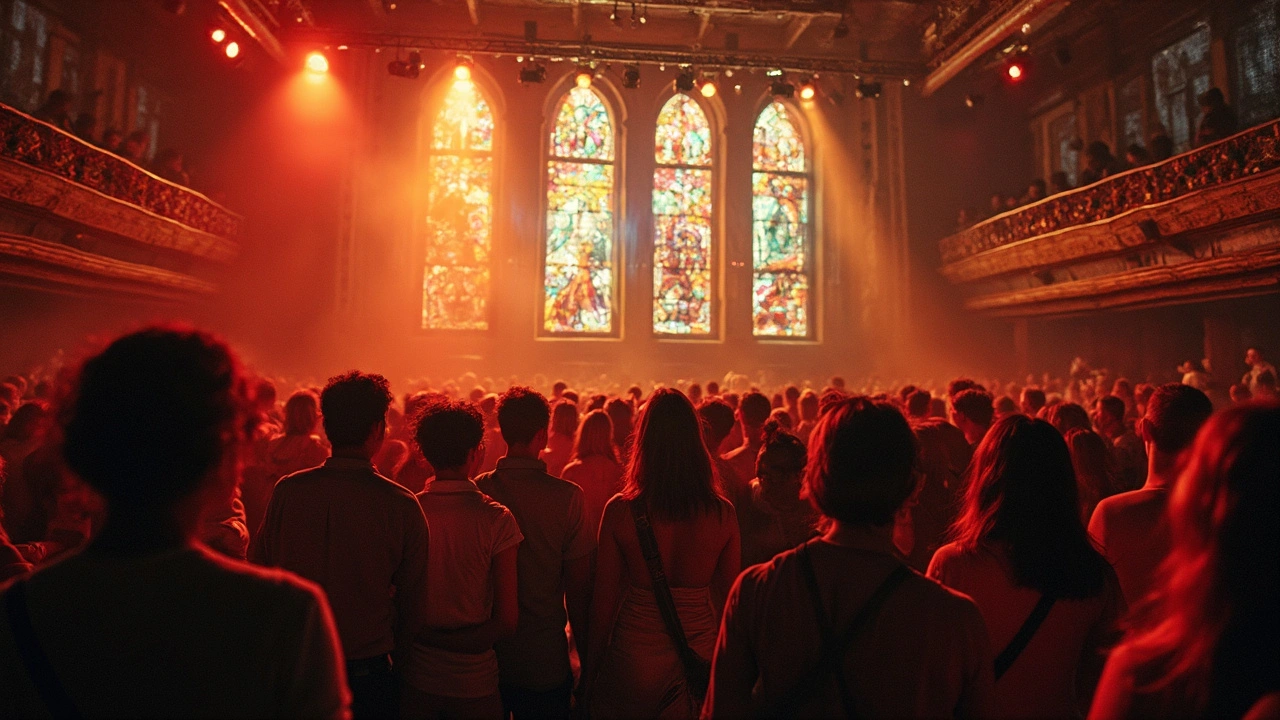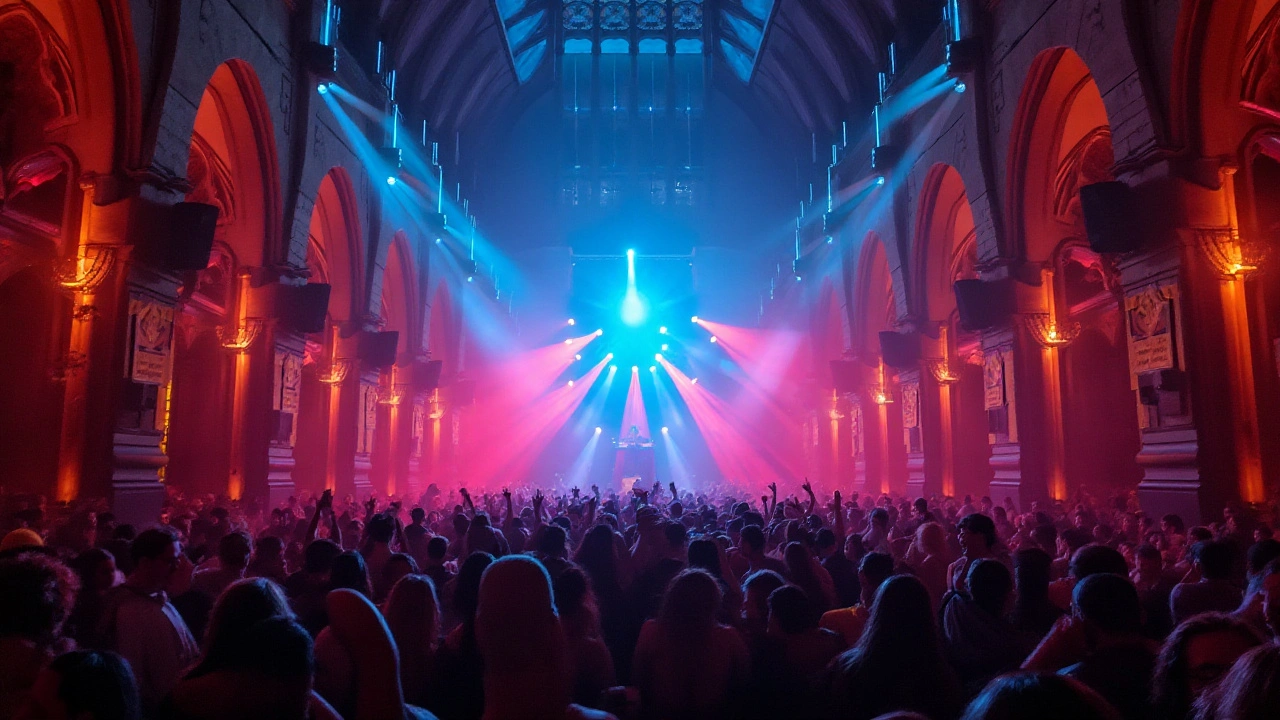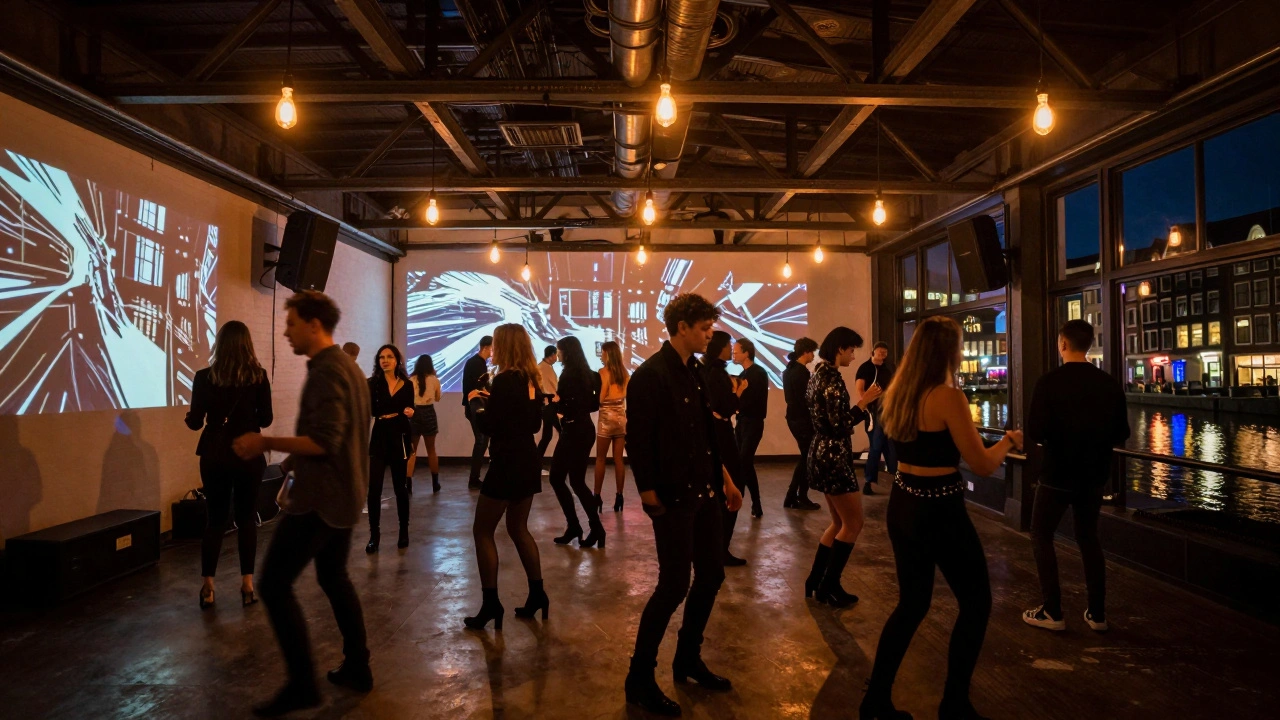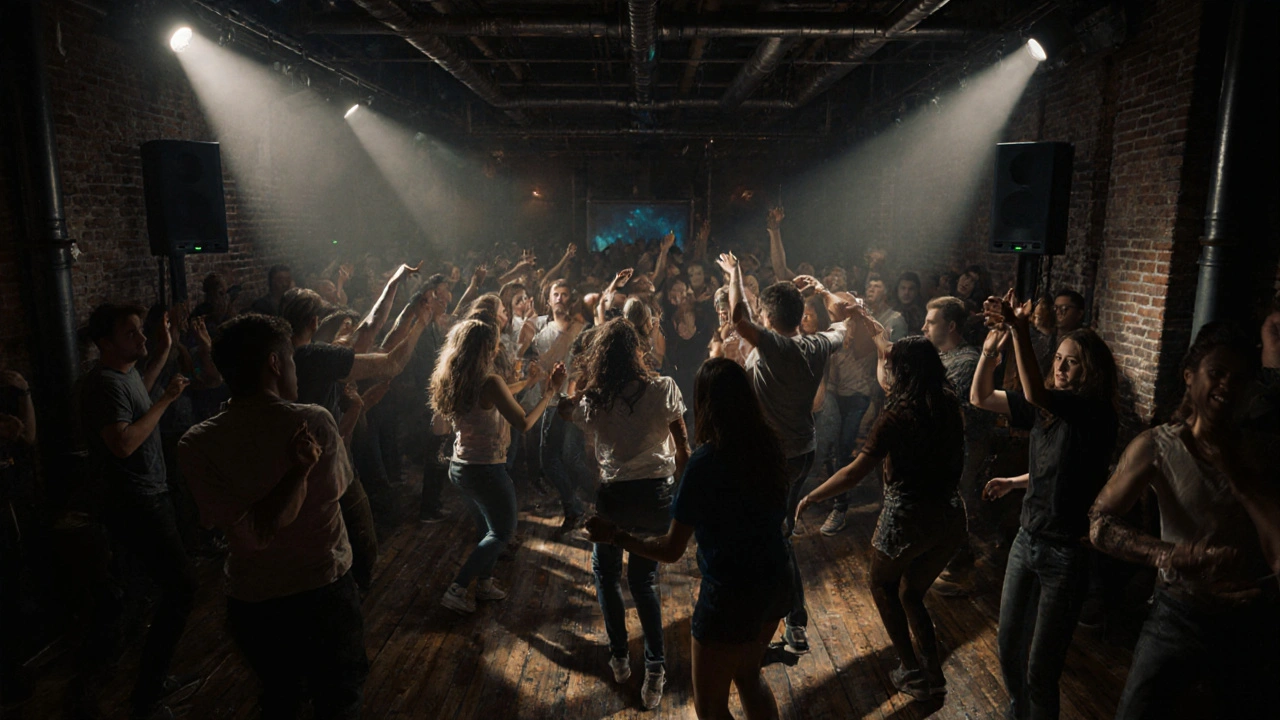
In Amsterdam, the night doesn’t end when the bars close-it just gets louder. While tourists flock to the Red Light District or sip jenever in cozy brown cafes, a different kind of connection is happening behind unmarked doors in warehouses along the Amstel and in former factories near the NDSM wharf. This isn’t just about music. It’s about people. Real, raw, unfiltered networking that doesn’t happen over coffee meetings or LinkedIn messages. It happens in Amsterdam’s techno clubs, where the bass is the icebreaker and the crowd speaks in rhythm, not resumes.
Amsterdam’s Techno Scene Isn’t Just Music-It’s a Social Infrastructure
Think of Amsterdam’s techno clubs as the city’s hidden third space-between home and work-where relationships form naturally. Unlike corporate mixers or startup pitch nights, there’s no handshakes forced by organizers, no awkward small talk about the weather. Instead, you’re shoulder-to-shoulder with a data engineer from Utrecht, a Berlin-based label owner, a Dutch architect who designs soundproof studios, and a freelance sound designer who’s worked with Sven Väth. The common thread? A shared love for deep, hypnotic beats and the culture that surrounds them.
Places like De School (RIP, but its spirit lives on) and Paradiso’s basement during Amsterdam Dance Event (ADE) aren’t just venues. They’re ecosystems. People don’t go there to be seen-they go to feel something. And in that shared experience, trust builds faster than in any LinkedIn group. You don’t need a business card. You just need to nod when the kick hits right, or ask someone, “Where’d you hear that track?”-and suddenly, you’re talking about labels, gear, or the next underground party in a shipping container in Zaandam.
Why Amsterdam? The Perfect Storm of Culture and Geography
Amsterdam’s history of tolerance, its compact urban layout, and its legacy of squatting culture created the perfect conditions for techno to thrive. The city’s canals and old warehouses didn’t just house trade-they became sanctuaries for rebellion. In the 1990s, illegal raves in abandoned factories like De Pijp’s old meatpacking plants laid the groundwork for today’s legal, world-class clubs. Today, those same spaces are curated by collectives like De School alumni, WORM, and De Marktkantine, who still operate with a DIY ethos-even when they’re hosting international DJs.
Geography matters too. Amsterdam sits at the heart of the Benelux techno corridor. It’s a 90-minute train ride to Rotterdam’s De Klinker, a two-hour drive to Utrecht’s De Helling, and less than three hours to Berlin’s Berghain. That proximity means people move between cities like commuters. You meet someone at De School on Friday, swap numbers, and two weeks later you’re at a warehouse party near the IJ river with them, helping set up speakers. These aren’t random encounters. They’re the result of a dense, interconnected scene.
The Unspoken Rules of Networking in a Techno Club
If you’re used to networking at conferences, the rules here are different-and more effective.
- No one asks what you do. Not at first. You’re judged by how you move, how you listen, how you respect the space. If you’re dancing like you’re in a rush, people notice. If you’re standing with your phone out, you’re invisible.
- Follow the sound. The best conversations happen near the sound system, not the bar. If you’re drawn to a track you can’t place, ask the person next to you. Nine times out of ten, they’ll know the artist, the label, and maybe even the DJ’s real name.
- Leave your title at the door. Saying “I’m a venture capitalist” means nothing here. But saying “I run a label that releases ambient techno from Groningen” opens doors. Authenticity beats prestige.
- Follow up in person, not DM. If you click with someone, don’t text them the next day. Go to their next party. Show up. That’s how you prove you’re serious.
There’s a reason so many Dutch techno labels-like Afterlife (though based in Italy, founded by Dutch artists), Rekids (co-founded by Amsterdam-based producer), and Pluxemburg-started with friendships forged on dancefloors. These aren’t just music projects. They’re networks.
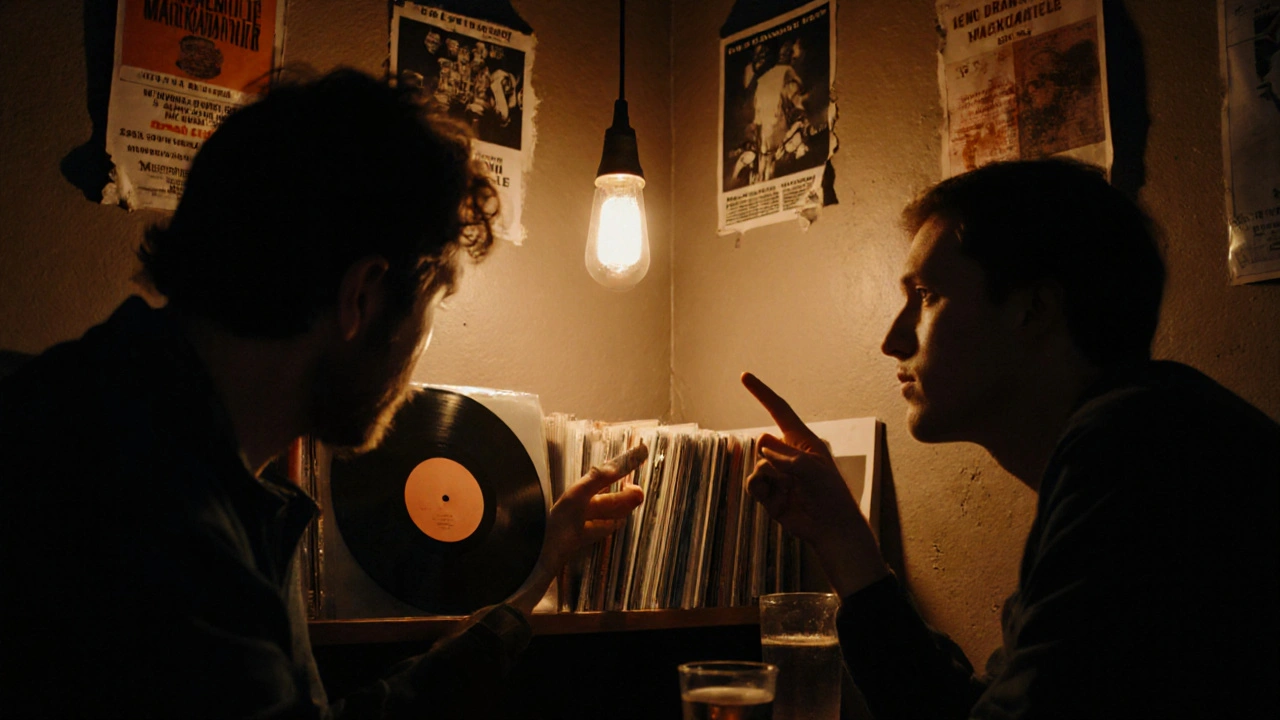
Real Connections, Real Outcomes
Here’s what happens when you treat Amsterdam’s techno scene as a networking engine:
- A graphic designer from Indonesia met a sound engineer at Paradiso during ADE. They started a studio together in the East District, now producing audio for Dutch museums.
- A German tech founder met his CTO at De Marktkantine after asking about a modular synth he was using. They launched a SaaS tool for live audio manipulation-now used by 300+ clubs in Europe.
- A Dutch startup founder pitched his idea to three investors at a post-party breakfast at De Pijp’s De Kas café-not over coffee, but after a 4-hour set at De School where they all danced together.
These aren’t anecdotes. They’re patterns. The same people who show up at De School on Tuesday nights are the ones who show up at WORM’s experimental sound nights. They’re the ones who know who’s booking next month’s Amsterdam Dance Event afterparties. They’re the ones who get invited to private listenings before a new album drops.
How to Start Networking in Amsterdam’s Techno Scene (Even If You’re New)
You don’t need to be a DJ. You don’t need to know the difference between minimal and acid techno. You just need to show up-and stay curious.
- Start with ADE. It’s not just a festival-it’s the biggest open door in the scene. Attend free daytime talks at De Balie or Stadsschouwburg, then head to the afterparties. You’ll meet more people in two nights than in two months at regular networking events.
- Follow local collectives. Track De School’s alumni events, WORM’s calendar, and De Marktkantine’s weekly lineups. These are the hubs where the real connections happen.
- Volunteer. Many clubs need help with sound checks, crowd control, or social media. Show up to help, even for one night. You’ll be remembered.
- Don’t chase fame. The best connections aren’t with the headliners. They’re with the people running the lights, the ones who know where the hidden parties are, the ones who’ve been doing this for 15 years and still show up every weekend.
- Go early. The first hour of a set is when the crowd is still forming. That’s when conversations start. By 2 a.m., everyone’s lost in the music.
What Makes This Different from Other Cities
London has clubs. Berlin has Berghain. New York has Brooklyn warehouses. But Amsterdam has something rarer: a scene that still values substance over spectacle. There’s no VIP section at De Marktkantine. No bouncers turning away people because they’re not wearing the right shoes. The only requirement? Respect for the space, the sound, and the people in it.
And because Amsterdam is small-just 800,000 people in the city proper-it’s easy to see the same faces week after week. You’ll recognize someone from last month’s party at Paradiso at a breakfast spot in Jordaan. That’s not coincidence. It’s the nature of a tight-knit community.
The Future of Networking in Amsterdam
As remote work grows and traditional offices fade, people are looking for real belonging-not just professional contacts. Amsterdam’s techno clubs offer that. They’re not just places to dance. They’re places to build careers, launch businesses, and find collaborators who care more about the next track than the next quarterly report.
If you’re tired of forced networking events, cold emails, and LinkedIn spam, try something else. Walk into a warehouse near the IJ river on a Thursday night. Don’t say anything. Just listen. Feel the bass. Let the music do the talking. Someone will look at you, smile, and say, “You feel that?”
That’s your opening.
Do I need to know techno music to network in Amsterdam’s clubs?
No. You don’t need to be a techno expert. What matters is openness. People notice when you’re genuinely curious-when you ask about a track, when you dance without judgment, when you respect the space. Many people who became key figures in the scene started as complete beginners. The music is the language, but the attitude is the grammar.
Are these clubs safe for newcomers and solo visitors?
Yes. Amsterdam’s techno scene is famously inclusive and low-key about safety. Most clubs have trained staff, clear exits, and a strong culture of looking out for each other. You won’t find aggressive bouncers or gatekeeping. The community self-polices. If you’re respectful, you’ll be welcomed. Many expats say their first night at a club was the moment they felt like they belonged in Amsterdam.
Can I network in Amsterdam’s clubs if I’m not in tech or creative industries?
Absolutely. The scene includes lawyers, doctors, teachers, farmers, and even retired engineers. What unites them isn’t their job-it’s their passion for the music and the culture. One accountant from Leiden met his business partner at a party near the Amstel and now runs a sustainable lighting company for clubs. Your background doesn’t matter. Your curiosity does.
What’s the best time of year to start networking in Amsterdam’s techno scene?
The best time is during Amsterdam Dance Event (ADE) in October, when the city is buzzing with international visitors and local events are everywhere. But the real opportunity is in November-right after ADE. The scene quiets down, but the core community stays active. That’s when the real, long-term connections form, away from the crowds.
Is there a dress code for Amsterdam techno clubs?
No. You’ll see everything from tailored coats to ripped jeans and boots. The only rule is comfort. You’ll be dancing for hours, often in damp, cold warehouses. Wear shoes you can move in, layers you can take off, and avoid anything that makes you feel like you’re trying too hard. Authenticity is the only dress code that matters.
Where to Go Next
If you’re ready to dive in, start with these three spots:
- De Marktkantine - Every Thursday, open late, intimate, local crowd.
- WORM - Experimental sound nights, often free, always thought-provoking.
- Paradiso - Check their basement schedule during ADE or winter months for underground sets.
Bring a friend if you want, but go alone if you can. You’ll be surprised who you meet when you’re not hiding behind someone else.

